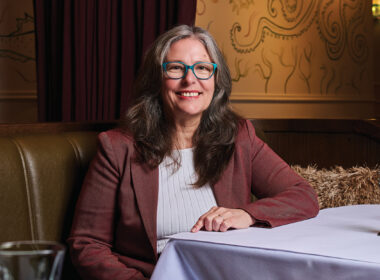Australian Pro Bono Centre chief John Corker reflects on how the fight for Imparja Television showed him the satisfaction of social justice law.
The battle for Imparja Television changed my life. It showed me that the small could succeed against the powers that be, and that was really exciting.
The vision for an Aboriginal-controlled commercial television station came from Freda Glynn, chair of CAAMA, the Central Australia Aboriginal Media Association. Freda argued that the satellite was the white man’s message stick and that if satellite television was going to be introduced into remote areas where people had either no television or just the ABC, there ought to be some Aboriginal control and some Aboriginal content so it wasn’t completely culturally destroying as it came in.
I was 31 in 1986 when the hearings began into the allocation of the new television license. I was living in Alice Springs doing criminal defence work as a Legal Aid lawyer. I loved living there and I got to know many remote communities and the families who lived there. I learned a lot about the Aboriginal identity.
Doing that work really influenced my career because I was seconded to CAAMA, to be the corporate counsel who assembled the case for Imparja Television. The “case” was a four-year process from the time we lodged the application until the Australian Broadcasting Tribunal finally made its decision, awarding the license to Imparja Television.




